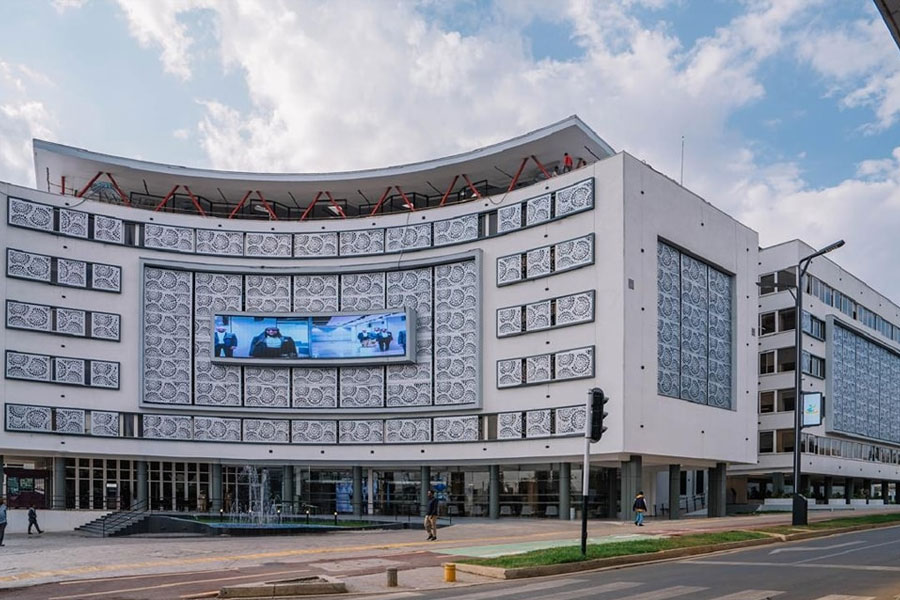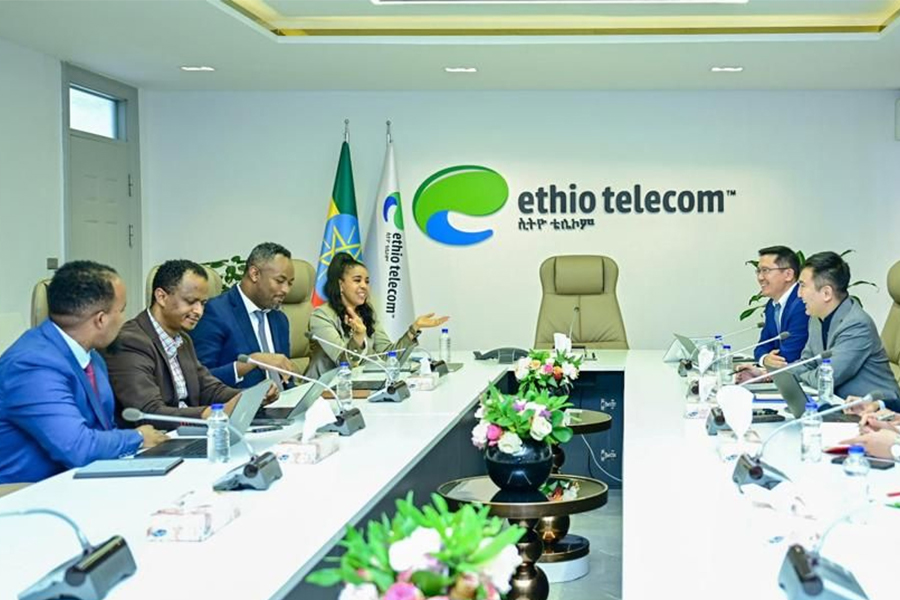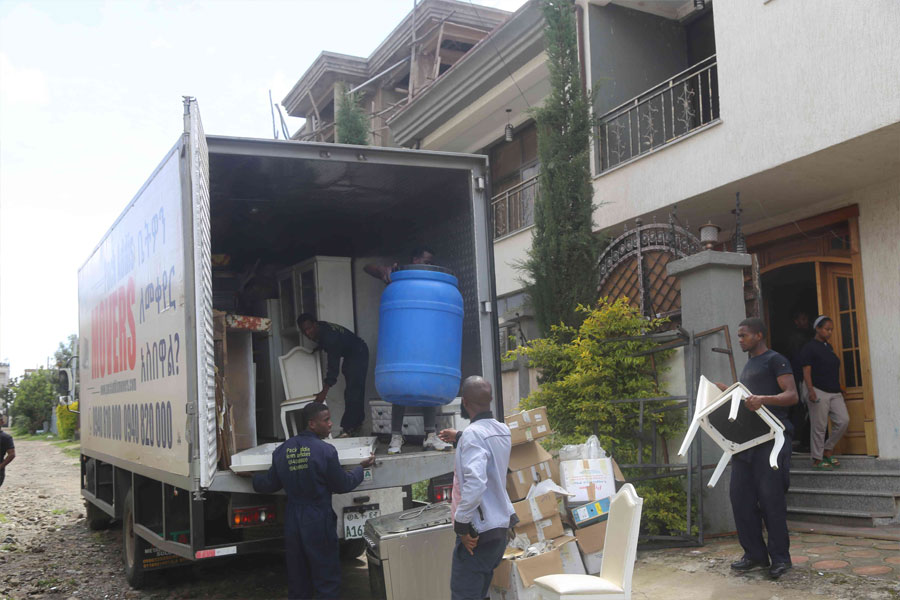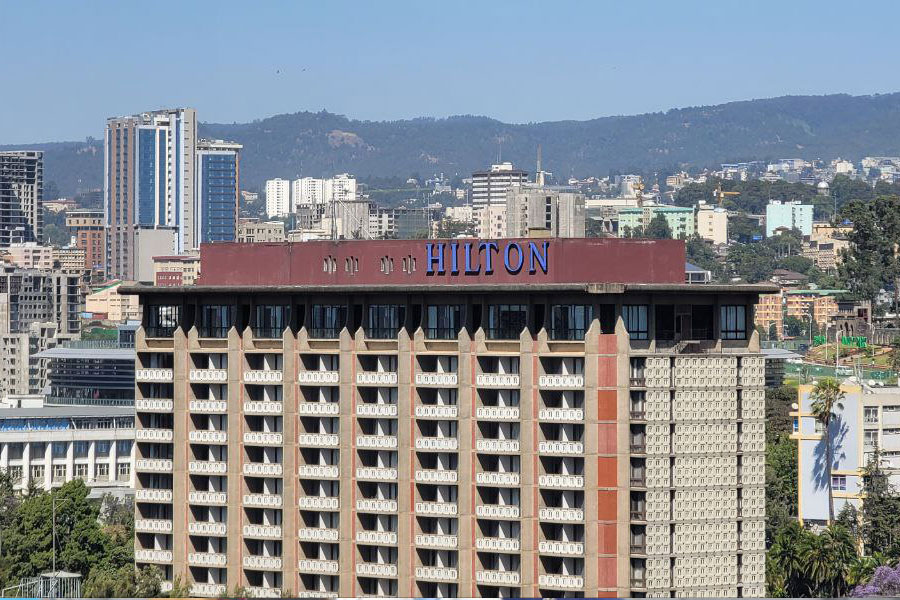
Agenda | Aug 18,2024
Aug 14 , 2022.
The call for lofty ideals such as national dialogue and consensus has been as old as Ethiopia’s ingrate revolution. It may mean different things for various groups as successive regimes danced around the multiple elements of the concept. But they tend to see it as a ploy of their adversaries as the shortest path to power sharing, if not grab.
However, it was not until last year Ethiopia’s parliament legislated a stand-alone institution, commissioning 11 members to serve in the National Dialogue Commission. It is chaired by Mesfin Araya (Prof.), a multilingual mental health physician.
How the Commission is set up, and its members’ composition has stirred prominent political party leaders and their followers. Nonetheless, the Commission has laid out its action plan for its duties this year, including targets to be reached, budget and potential challenges. It has yet to set agendas for “dialogue” and who will get to participate. It will be no easy task. The conflicts and wars menacing Ethiopia are several and complex. The devil is in the detail.
Can a party designated as a terrorist organisation take part? Which issues would get priority, and which would be taboo? Will any case be considered beyond reach? Are there any réprobateur social and political groups unworthy of this national enterprise? How and when would an issue deem to be settled or meaningfully addressed?
The Commission’s most sensational proposition has been its budget for its inaugural year. Its leaders hope to raise much of the 3.4 billion Br budget from the public coffer and a much smaller slice from development partners. Taxpayers have to cough up a resource 10-fold the allocation to the national electoral board and around a quarter higher than Addis Abeba University’s budget, the country’s oldest higher-learning institution.
What returns do Mesfin and his colleagues have in store to show for such a tremendous appropriation?
Legislating the Commission, Parliament laid out what seems to be an impossible task for any earthly power to address. It wants to “mend degraded . . . social values” and “bolster national consensus” created as a result of disagreements on the “most fundamental national issues.” Parliamentarians see it necessary to address the differences “through broad-based” and “inclusive public dialogue”.
These could be lofty goals for a country and its populations that have been through some of the most brutal years anyone could have imagined. It appears that the Commission needs tools short of magic potions as much as it needs billions of Birr in budget appropriations. What it sets out to do could be elusive to conclude whether it will be inclusive or a legitimate exercise toward justice and durable peace. The earlier signs are far from encouraging. The disagreements, ambiguity and, mostly, confusion about many of the purpose and goals of the Commission are concealing a crucial fact: a “national dialogue” may not be the right prescription, at least not in the current state of Ethiopia.
Issues of justice, negotiated settlement and forgiveness are way too abstract to get any meaningful discussion going. The social and political imperatives do not favour a meaningful national dialogue where there is little or no shared informal rule of behaviour. Add history and historical memory to this, and it gets murkier. A historical figure sacred to one group is considered an unredeemable monster by the other. A historical episode of pride for some groups is regarded as an abomination by others. Nuance is viewed as a luxury, an apology for historical injustice or disloyalty to the country.
The “national dialogue” could not have been a more misfitting course to take where demonisation, misperception and self-righteousness have prevailed. The tunnel the late Shimon Peres was advocating as a crucial medium for constructive and healthy dialogue appears to be missing.
Mesfin et al are not a group of 11 people perceived as “fairly representative” to lead a dialogue under the circumstances. No wonder there were misgivings. It is not even clear if there are a group of 50 people that would be considered sufficiently representative of the wildly diverging interests and identities at the moment. However it was carved out, any proposed “national dialogue” could have only been helpful to appease certain political groups, respond to a few demands and please some Western partners.
In a way, it is for the better that it will be taking place if only to demonstrate how futile and wasteful of resources and time it would be to the general public.
Dialogue between individuals and a group of people is an ongoing process through different channels and public squares. It cannot be a defined aim to target. In any society where political and human rights are respected and protected, dialogue takes care of itself. It needs no commission or to exorbitantly waste taxpayer money. National dialogue does not happen by a decree but by the shared will and a political environment that allows it to occur - spontaneously. The problem with its thesis is that it could happen between people, as things stand, and take on abstract topics.
The establishment of the Dialogue Commission could be right about one thing, though. The issues that justified its formation are nothing but acknowledgements of the fundamental differences in Ethiopia’s society and the degradation of social values and norms. The focus should instead be on less conceptual issues and more on helping bring a grand bargain for peace. There need to be negotiations leading to settlements.
The energy and resources of the Commission should go into supporting talks to bring the civil war in the north to a negotiated and agreed ceasefire. This is about silencing the guns, allowing unfettered access to humanitarian provisions and resuming essential public services. Locking an entire population down into perpetual deprivation is appalling and morally indefensible. People need to get back to their lives, send their children to school, eat three meals a day and go out without fear of being caught up in a massacre before they can start thinking about forgiveness or justice.
The flared-up insurgencies in the southwest and the restiveness of social groups in the north fuelling political instabilities are far deeper and more intricate to tame through national dialogue. They require negotiated settlements between warring parties to agree on parameters, such as recognising the legitimacy of each others’ concerns, showing empathy to misgivings, and being careful about the tendency for cancel-culture. The Dialogue Commission can, through its resources, support these, facilitating talks between the elites representing these social groups and political interests.
Over the longer term, the Commission may present itself as a platform for discussing and debating potential constitutional amendments. Instead of abstract concepts that should be left to academic halls and personal philosophising, it could offer an opportunity to discuss something concrete and useful. Debates, talks and discussions can help if they focus on constitutional matters to secure enduring political settlements. Everything else appears to be a choreography designed for the pleasure of a few benefiting from the show.
PUBLISHED ON
Aug 14,2022 [ VOL
23 , NO
1163]

Agenda | Aug 18,2024

Radar | Apr 15,2023

Fortune News | Aug 17,2025

Editorial | Jan 09,2021

Radar | Sep 22,2024

Advertorials | Nov 26,2024

Agenda | May 27,2023

Fortune News | Apr 03,2023

Fortune News | Mar 02,2024

Fortune News | May 24,2025

Photo Gallery | 177110 Views | May 06,2019

Photo Gallery | 167323 Views | Apr 26,2019

Photo Gallery | 157934 Views | Oct 06,2021

My Opinion | 136960 Views | Aug 14,2021

Dec 22 , 2024 . By TIZITA SHEWAFERAW
Charged with transforming colossal state-owned enterprises into modern and competitiv...

Aug 18 , 2024 . By AKSAH ITALO
Although predictable Yonas Zerihun's job in the ride-hailing service is not immune to...

Jul 28 , 2024 . By TIZITA SHEWAFERAW
Unhabitual, perhaps too many, Samuel Gebreyohannes, 38, used to occasionally enjoy a couple of beers at breakfast. However, he recently swit...

Jul 13 , 2024 . By AKSAH ITALO
Investors who rely on tractors, trucks, and field vehicles for commuting, transporting commodities, and f...

Oct 25 , 2025 . By YITBAREK GETACHEW
Officials of the Addis Abeba's Education Bureau have embarked on an ambitious experim...

Oct 26 , 2025 . By YITBAREK GETACHEW
The federal government is making a landmark shift in its investment incentive regime...

Oct 26 , 2025 . By NAHOM AYELE
The National Bank of Ethiopia (NBE) is preparing to issue a directive that will funda...

Oct 26 , 2025 . By SURAFEL MULUGETA
A community of booksellers shadowing the Ethiopian National Theatre has been jolted b...